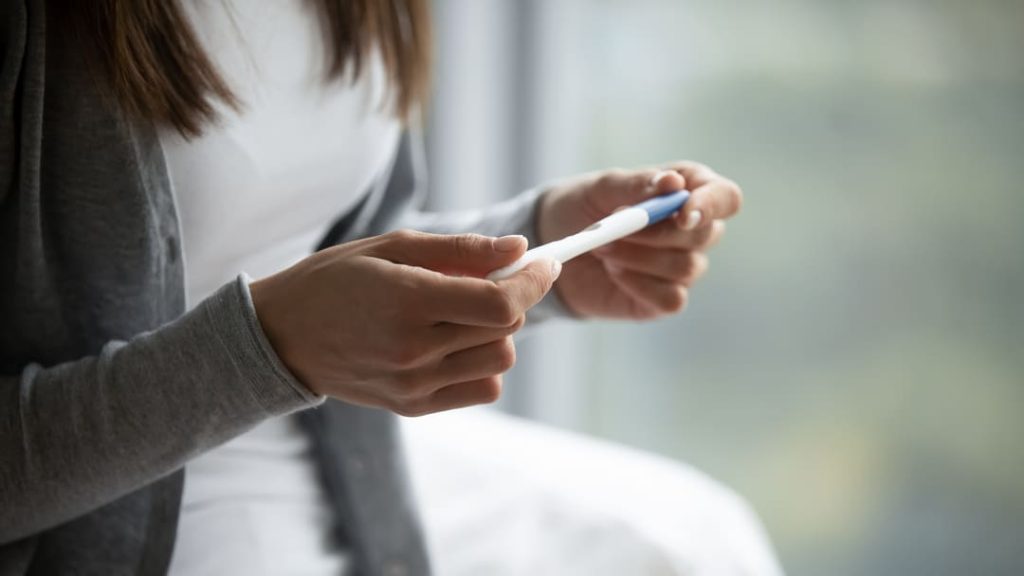Looking for Expert-Level VA Claim Answers?📱Call Us Now! 737-295-2226
If you’re a veteran living with infertility, menstrual disorders, endometriosis, or other gynecological conditions, you may qualify for VA disability compensation (even if your symptoms didn’t begin until after service).
In this guide, we’ll break down how the VA rates gynecological conditions, which diagnostic codes apply, and what disability benefits you may be entitled to..
We’ll also clarify what does and doesn’t qualify for a VA disability rating, so you can better understand your options and take the next step in your claim.
Let’s dive into what you need to know.
Table of Contents
Summary of Key Points
- Gynecological conditions can qualify for VA disability compensation if they result in lasting symptoms, organ loss, or related mental health effects.
- Infertility itself is not rated, but conditions like non-functional ovaries or surgical removal of reproductive organs may qualify for monthly compensation or high VA ratings (up to 100%).
- Endometriosis, menstrual disorders, and HPV may receive VA ratings based on severity, persistence, and treatment response.
- Mental health conditions (like PTSD or depression) related to miscarriage or infertility may also qualify for separate disability ratings.
VA Disability Rating for Gynecological Conditions

In 2018, a new VA rating schedule for gynecological conditions and disorders of the breast was implemented.
The new rating schedule added several new diagnostic codes and ensured that women and men veterans were equally evaluated.
While several gynecological conditions warrant a 10% or higher VA disability rating, some don’t.
For example, the female sexual arousal disorder VA rating is 0% unless there is damage to the genitals. However, a 0% VA rating may still qualify you for certain benefits, including VA healthcare, dental care, vision care, and VA Life Insurance (VALife).
Infertility

While infertility itself isn’t a VA disability, and there is no infertility VA rating, you may be eligible for disability benefits if you lose the use of your reproductive organs because of your time in the service.
While most of the conditions, for example, non-functional ovaries (Ovaries, atrophy of both, complete), may cause infertility, the VA provides disability ratings for functional impairment due to symptoms associated with non-functional ovaries and other specific conditions, NOT infertility.
If loss or loss of use of a creative organ due to service-connected “Ovaries, atrophy of both, complete” is present, VA will consider special monthly compensation under the provisions of 38 CFR 3.350(a).
- 20% if both ovaries are completely non-functional
- 100% if your entire uterus and both ovaries are removed
- 50% after the first three months
- 100% if your entire uterus is removed
- 30% after the first three months
- 100% for three months after surgery if one or both ovaries are removed
- 30% after those three months, if both ovaries were removed or one was removed, and the other doesn’t work
- 0% after those three months if one ovary is still intact and functioning
VA Disability Rating for Menstrual Disorder

If you have pelvic pain or heavy or irregular bleeding (menorrhagia), you may be eligible for a VA disability rating for menstrual disorder.
The menorrhagia VA rating depends on how much you can control the condition and is as follows:
- 30% if you experience symptoms despite treatment
- 10% if continuous treatment helps your symptoms
- 0% if your symptoms don’t require treatment
It’s possible to have a 30% VA rating for menorrhagia that is later reduced to 10% if your symptoms improve.
Additional types of menstrual disorders:
- Dysmenorrhea
- Secondary Amenorrhea
- Polycystic ovarian syndrome
- Prolonged menstrual bleeding
VA Rating for Endometriosis
In addition to the potential 30% and 10% ratings listed above for menstrual disorders, a diagnosis of endometriosis may warrant the following VA rating for endometriosis:
- 50% if you have lesions involving bowel or bladder confirmed by laparoscopy, pelvic pain or heavy or irregular bleeding not controlled by treatment, and bowel or bladder symptoms
Note: A diagnosis of endometriosis must be substantiated by laparoscopy, a procedure that allows a surgeon to access the inside of your abdomen and pelvis.
Related guide: Endometriosis VA Disability.
VA Disability Rating for Miscarriage
There is no specific VA disability rating for miscarriage; however, it can lead to other conditions, including PTSD or depression, which could qualify for disability compensation.
In addition, your miscarriage could be caused by another gynecological condition, potentially leading to a VA disability rating.
We understand that having a miscarriage is a devastating time, so getting the help and care you deserve is essential. As a veteran, you are eligible for free counseling services through the VA, allowing you to speak with someone anytime.
In Vitro Fertilization (IVF)
While there is no VA rating for IVF, you may be eligible for compensation regarding in vitro fertilization.
To be eligible for IVF, you must meet the following criteria:
- You are legally married
- You have at least one functioning ovary or cryopreserved eggs, and an intact uterus
- You have a service-connected condition causing infertility
- Your spouse has cryopreserved sperm or can produce sperm
VA Disability for Abnormal Pap Smear
Generally, an abnormal pap smear by itself isn’t considered a service-connected disability unless you can directly link it to your military service.
However, you should consider filing a claim if you receive a diagnosis after your abnormal pap smear and feel it was caused by your time in the military.
Pap Smear
A pap smear is a regular procedure to check for cervical cancer in women, and we understand that receiving abnormal results can be scary.
What is an Abnormal Pap Smear?
An abnormal pap smear indicates the presence of abnormal cells or the human papillomavirus (HPV), which could mean a potential health issue related to cervical cancer.
An abnormal pap smear doesn’t automatically mean cancer, but there were cell changes on your cervix.
The Centers for Disease Control and Prevention states that HPV typically causes abnormal changes in your cervix. If you receive an abnormal pap smear, it’s essential to follow up with your doctor for appropriate treatment.
What is the VA Disability for HPV?
You can receive a VA disability rating for HPV if you can prove you contracted the virus during your service.
HPV is most commonly transmitted through sex or close skin–to–skin contact during intercourse.
While you may not be eager to discuss the condition, addressing whether you are owed benefits and compensation is crucial.
If your HPV becomes cancer, you may qualify for a service-connected diagnosis and receive VA disability.
If you can prove your cancer is service-connected, you will receive 100% VA disability while the cancer is active.
Service Connection for Gynecological Conditions
To qualify for a service-connected VA disability for gynecological conditions, you must submit evidence of the following:
- A current medical diagnosis
- An in-service event, injury, or illness, AND
- A medical nexus linking the current diagnosis to the in-service event
Related: 7 Most Common Disabilities for Women Veterans
Conclusion
Gynecological conditions can deeply affect your physical, emotional, and reproductive health—but they can also qualify for VA disability compensation when service-connected. While some conditions may not receive a direct rating (like miscarriage or infertility), the symptoms or secondary impacts may still make you eligible for significant benefits.
If you’re a veteran dealing with lasting effects from a gynecological condition tied to your service, don’t hesitate to file a claim or seek expert help. The VA system can be complex, but you don’t have to navigate it alone.
NEED MORE ASSISTANCE?

Most veterans are underrated for their disabilities and, therefore, not getting their due compensation. At VA Claims Insider, we help you understand and take control of the claims process so you can get the rating and compensation you’re owed by law. Our process takes the guesswork out of filing a VA disability claim and supports you every step of the way in building a fully-developed claim (FDC)—so you can get what you deserve in less time!
If you’ve filed your VA disability claim and have been denied or have received a low rating—or you’re unsure how to get started—reach out to us! Take advantage of a VA Claim Discovery Call. Learn what you’ve been missing—so you can FINALLY get the disability rating and compensation YOU DESERVE!
FAQs
Can I get VA disability for infertility?
Infertility itself is not rated, but if it’s caused by a service-connected condition (like non-functional ovaries or surgical removal of reproductive organs), you may qualify for compensation, including special monthly compensation for loss of use of a creative organ.
Is there a VA rating for menstrual disorders like menorrhagia or PCOS?
Yes. Conditions like menorrhagia, endometriosis, and PCOS may qualify depending on severity and how well symptoms respond to treatment. VA ratings range from 0% to 50%.
Can I get VA disability for an abnormal pap smear or HPV?
An abnormal pap smear alone isn’t rated unless linked to a condition like HPV, dysplasia, or cervical cancer. If your HPV is service-connected and leads to cancer, you may qualify for a temporary 100% VA rating during treatment.
Does miscarriage qualify for VA compensation?
There’s no direct VA rating for miscarriage, but it may lead to mental health conditions (like PTSD or depression) that can be rated separately. VA also offers free counseling for emotional support.
Is IVF covered by the VA?
While not rated as a disability, IVF services may be provided if you meet eligibility criteria—including a service-connected infertility diagnosis, intact uterus, and cryopreserved eggs or sperm.
Author

Kelly Olone
Kelly Olone is a military spouse who earned her degree in Psychology from Florida International University. After working in the non-profit sector for several years, she turned to her passion for writing. She aims to contribute to a better understanding of the valuable benefits that veterans deserve. As a mom, Kelly navigates the delicate balance between deadlines and bedtime stories with finesse.



